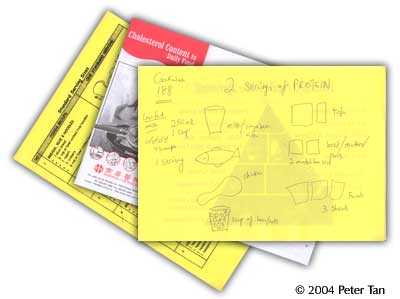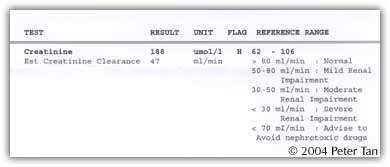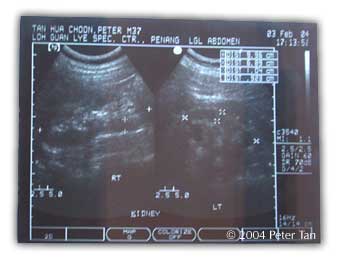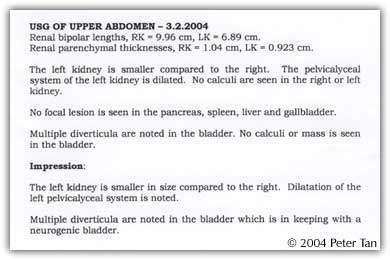
Every time I put food into my mouth, I have to be mindful that they are renal-friendly. A visit to the dietician last week has radically changed the way I eat. The visit was recommended by the urologist who wanted me to eat sensibly and reduce food that will put more stress on my impaired kidneys.
The kidneys perform several important functions to keep us healthy. They remove waste products by filtering our blood. They maintain the water balance by removing excess fluid. They maintain a healthy chemical balance in the body by removing those that are not needed.
Kidneys also produce two hormones and an enzyme. Erythropoietin stimulates the bone marrow to produce red blood cells. Calcitriol is the active form of vitamin D and helps the body absorb calcium to keep the bones healthy and strong. Renin is the enzyme that helps regulate blood pressure. I am slightly anaemic because of my renal impairment. The kidneys are not producing enough erythropoietin to stimulate a healthy growth of haemoglobin. However, that is not a cause for concern as my anaemia is mild.
A daily diet of two servings of protein is recommended. One cup of dairy milk or soya bean milk, one half cup of beans or nuts, and one matchbox-size portion of poultry, fish or meat are considered one serving. A high-protein intake produces waste in the blood. This puts a strain on the kidneys by forcing them to work harder in cleaning the blood.
I am also to go on a low-salt and low-purine diet. Food and ingredients with a good amount of salt include most sauces and preserved meats. I am one who likes a little saltiness in my food. This one regime will need a lot of self-control. I am going to miss my hams and bacons. Anchovies, prawns, roes, shellfish and sardines are among food high in purine content. I am advised to avoid high-purine food because of my higher than normal uric acid level.
However, I can eat as many servings of carbohydrates and fruits as I like. There are some vegetables that contain purine such as aparagus, dried beans, cauliflower, cabbage, lentils, mushrooms, spinach and tomatoes that I am allowed twice a week. Mushrooms are one of my favourites, especially shitake. This one needs a little discipline to adhere to.
As for fluids, I am drinking 3 liters of plain water daily which is more than sufficient. However, the dietician advised that the water intake be spread out over the entire day. I used to go on a water binge, gulping down more than 500ml of water at one go. This is another no-no as it puts a sudden strain on the kidneys which is not a good thing.
All said, this change of diet is one that I can keep to. The taboo foods will be like a luxury, one that I will recompense myself once in a long while. Although I am fond of char koay teow (fried rice noodles) and Hokkien mee (prawn noodles), I can live without them for an extended period, all for the sake of my own health. Hopefully, this will arrest, or at least decelerate, the deterioration of my kidneys.



